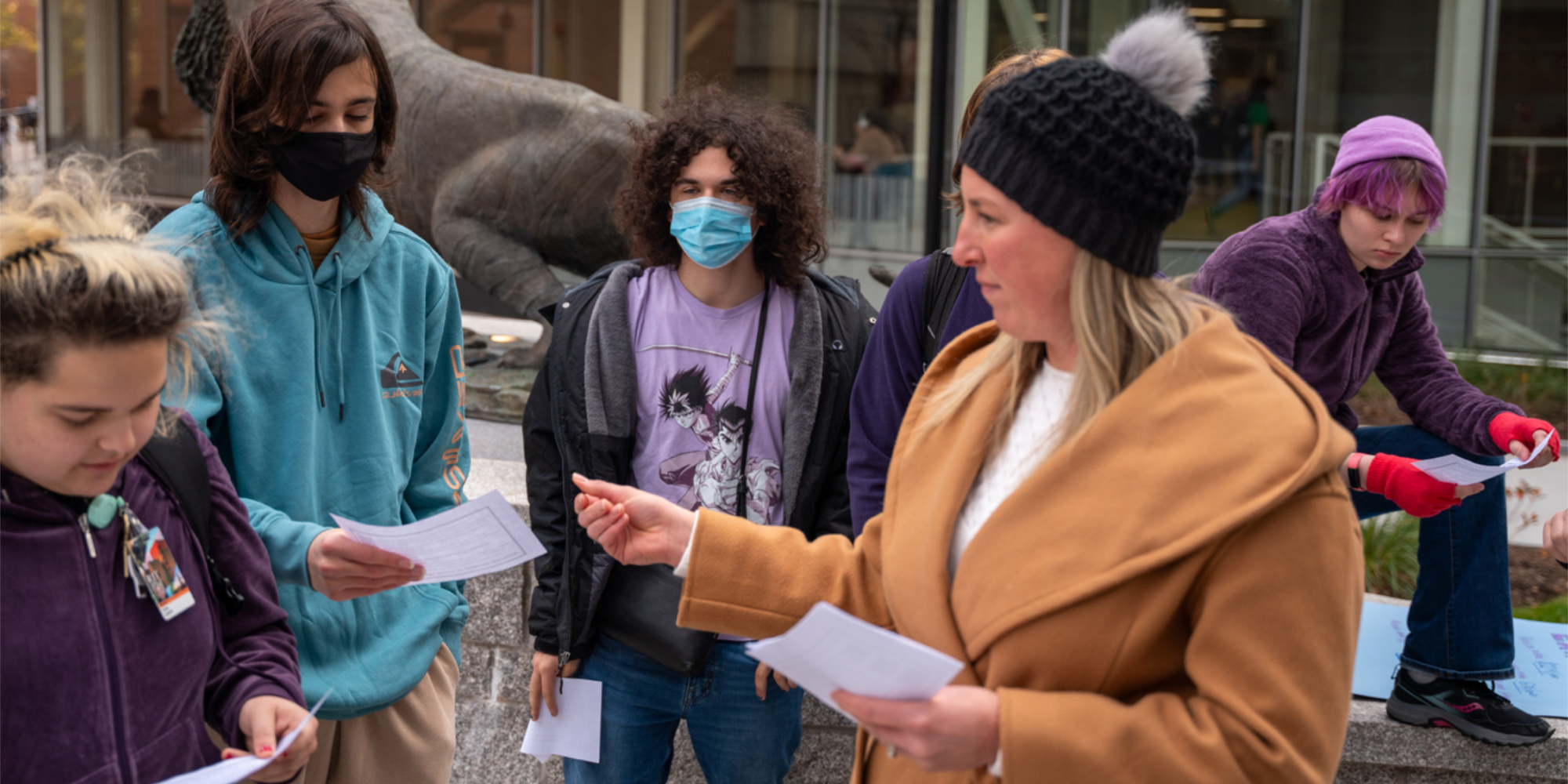In the wake of recent tragedies on and off RIT’s campus, as well as polarizing political conflict throughout the world, protesting informatively and safely has become paramount.
Many have raised questions about the counseling services provided by the university. Student disapproval of Counseling and Psychological Services (CaPS), stemming from perceived poor quality of care and the lack of resources for NTID students, are pressing issues for those seeking assistance.
With these latest occurrences, many students wish to express their grievances in a way that can push for legitimate improvements. But even students who want to take initiative may not know where to start. Recently, students planned to protest about CaPS, but the event was broken up as they did not follow proper procedures. While protesting, it is imperative to understand the university’s policies concerning political activism, as well as freedom of speech and expression.
Campus Policies
If registering to use university facilities, students must follow the guidelines related to the use of such spaces and must register via the Event Management System (EMS). When posting announcements for political events using university facilities, it is equally important to indicate that the views expressed in the protest are not those of RIT itself. The sponsoring organization conducting the event must also be noted on all advertisements.
Public Safety establishes restrictions regarding the timing, placement and manner of events on RIT’s campus, including student-led protests. Student organizations and faculty members may engage in expression activities in non-residential areas at any time and in residential areas between 8 a.m. to 10 p.m., as long as these avenues do not interfere with university operations or classes. RIT’s Governance Policy Library outlines that “third parties or invited guests may engage in freedom of speech or expression activities” as well, but only between 8 a.m. to 10 p.m. across campus.
Alongside these time and location regulations, using sound amplification while classes are in session is not permitted. Furthermore, protest activities cannot interfere with pedestrian or vehicle traffic or take place in parking lots, inside university buildings or within 20 feet of buildings conducting university activities.
Free Speech for All
In 2021, RIT’s Division of Diversity and Inclusion and Division of Student Affairs formed the Free Speech Series Committee. The group was established to create a campus culture prioritizing free speech and providing students with the skills to participate in civil discourse respectfully and productively.
Past events sponsored by the organization include a protest craft-making event about the Tinker v. Des Moines U.S. Supreme Court case and a talk by former American Civil Liberties Union (ACLU) President Nadine Strossen about free speech in the U.S. The Committee aims to create a university where students can feel comfortable speaking out about societal issues and utilizing their civil right to free speech. As such, students are encouraged by these groups to address their concerns.
Through an understanding of university policies, students and organizations can find the ability to work together in their attempts to resolve pressing issues through activism. Ultimately, much of the university’s future depends on students taking the initiative and protesting to push university leaders for change.
Students, faculty or non-RIT-affiliated parties wishing to properly start a protest must first fill out an approval form. After receiving the green light from Campus Life, students must bring their email notification to the Campus Center Welcome Desk for all prints to be stamped. Designated posting areas in the Student Alumni Union, Campus Center and Schmitt Interfaith Center all serve as sufficient locations for advertising.
Equipped with the means to organize and utilize their freedom of speech, the RIT community holds the ability to push for considerable change to existing conditions.








